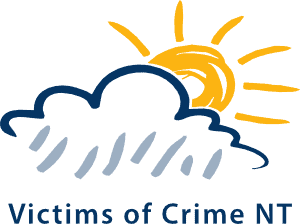Feeling unsafe
Feeling safe, stable, and secure is central to our health and wellbeing.
Feeling unsafe undermines our sense of security and stability, which are essential for our health, mental health and general well-being. It affects our ability to:
- focus and make decisions
- form healthy relationships and
- explore new opportunities
- engage in activities that could enrich our lives.
If you're feeling unsafe, there are ways you can prioritise your well-being and take steps to ensure your safety.
| Important numbers | Contact |
|---|---|
| Emergencies | 000 |
| Police assistance | 131 444 |
| Fire assistance | 132 500 |
| NT Emergency Services assistance | 08 8999 3473 |
| Crime Stoppers NT (to report suspicious behaviour) | 1800 333 000 |
| Victims of Crime NT | 1800 672 242 |
Feeling safe creates a positive environment and supports our well-being on multiple levels, from emotional and psychological to physical and social. It plays a crucial role in:
- happiness and
- quality of life
- relaxing easily
- focussing on relationships
- assisting with managing work or study commitments.
What if feeling unsafe
If you feel unsafe, you can do the following:
- create a peaceful environment around you
- address any direct sources of insecurity that you may find
- reduce your exposure to stressors
- create a happy space
- have faith in yourself
- reach out to supportive people in your life
- seek professional help.
Remember… If you're in immediate danger or at risk of harm, call Triple Zero (000).
Contact the NT Police on 131 444 if there are threats to your safety or threats to your friends or family member.
Keep safe tips
Remember, your safety is paramount, and it's okay to take whatever steps are necessary to protect yourself. Don't hesitate to reach out for help if you need it.
Trust your instincts
If you feel like you're in danger or uncomfortable, trust your instincts. Your intuition is often a reliable indicator of potential threats.
Remove yourself from the situation
Where possible, leave the environment or situation that is causing you to feel unsafe. Find a place where you feel more secure, such as a public area with people around or a trusted friend's home.
Contact someone for help
Reach out to someone you trust – a friend, family member, or coworker – and let them know what's going on. They can offer support, guidance, or even physical assistance if needed.
Call NT Police or Fire and Emergency services
If you're in immediate danger or witnessing a dangerous situation, don't hesitate to call emergency services such as the police, fire department, or medical services. They are trained to handle emergencies and can provide assistance quickly
Utilise safety apps or devices
Consider using safety apps on your phone that allow you to send distress signals or share your location with trusted contacts in case of an emergency. There are also wearable safety devices available that can alert authorities or contacts if you're in trouble.
Seek shelter
If you're unable to leave the area where you feel unsafe, seek shelter in a secure location until help arrives or the situation improves
Document the situation
If you're experiencing harassment, threats, or any other form of danger, document the details of the situation, including dates, times, and descriptions of individuals involved. This information may be helpful if you need to report the incident to authorities later.
Reach out for support
Don't hesitate to seek professional help or counselling if you're experiencing ongoing feelings of fear, anxiety, or trauma as a result of feeling unsafe. Therapists and counsellors can provide valuable support and coping strategies.
Who can help
NT Police
Call 131 444 in non-emergencies.
In emergencies call 000
Neighbourhood Watch NT
Call 08 8999 0847

Victims of Crime NT
Free call: 1800 672 242
Darwin: 08 8941 0995
Alice Springs: 08 8952 4466
Crime Stoppers NT
Call 1800 333 000